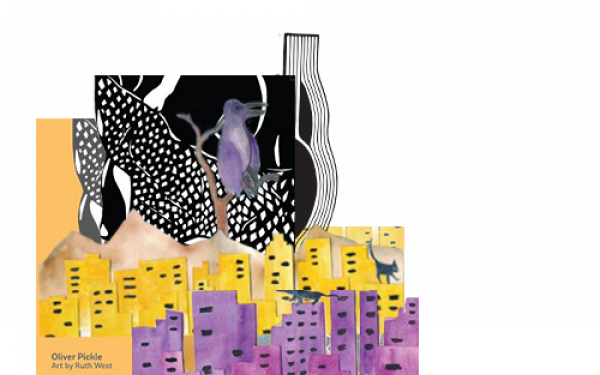Pressing Issues
Local Publisher Metonymy Press Smashes Literary Conventions
In psychology, “mirroring” (or “reflecting”) is a concept used to describe the self-actualization of the individual as a human being.
For example, parents mirror emotions to their children, and pop culture mirrors society to the consumer. Unfortunately, in our contemporary world, pop culture chiefly mirrors a single narrative—that of the ‘cismale,’ or straight, heteronormative male; it’s a narrative so pervasive that it acts to effectively dominate the voices of the marginalized.
One of the most muted groups is queer-identifying authors, who face roadblocks on the avenues toward publishing written work. Thankfully, organizations exist with the express goal of advocating for marginalized voices in the literary field, including publisher Metonymy Press, a local grassroots organization aiming to support such voices.
Metonymy began as the brainchild of longtime friends and neighbours, Ashley Fortier and Oliver Fugler. Though the two have been a writing team since high school, Metonymy is “revving into gear starting this year,” according to Fortier. The publishing house was just able to secure funds to begin publishing in earnest. Funding, however, remains a consistent issue for the recent startup.
“Funding is an issue in publishing. Although we were lucky to get a grant from the Quebec government for starting up, crowd-sourcing and profit from sales are what we have to rely on now,” Fortier explained. Keeping the company small also plays a factor in their financial situation and ability to publish works.
“If there were more than two of us, we could work on more than one project at a time…open calls for work always result in a lot of proposals, and we can only work on so many,” Fortier said.
Writers who identify as queer unfortunately have to contend with the fact that they are dealing with a relatively limited market: “self publishing and small community-run presses are often your publishing options, ” she continued.
The greatest tip Fortier offered to the aspiring queer writer was to “try to make a ritual out of [writing],” and to share the work with trusted people.
Recently, the publisher released She Is Sitting in the Night, a queer tarot book. In the spring of next year, Metonymy will release its second novel, Small Beauty, written by Jia Qing Wilson-Yang. Small Beauty tells the story of Mei, a mixed-race trans woman managing the death of her cousin. Mei must navigate a world of racism and transphobia, attempting to maintain her hope for finding community when she visits a town from her family’s past.
Regardless of the Metonymy’s uncertain future, for Fortier, the press’s purpose is clear.
“Putting new queer/feminist/marginalized voices out into the world is about participating in the broader communities and networks of people doing that same work,” she said. “So we’re always looking to learn from and support like-minded authors, publishers, community groups, and so on.”

WEB_700_1050_90.jpg)

